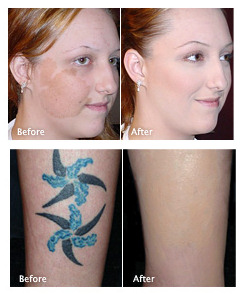Tips for Camouflaging Skin Imperfections with Makeup
 Women with significant skin imperfections: port wine stains, scars, pigmentation irregularities, and rough skin frequently ask the experts at NeoStrata, makers of the CoverBlend line of corrective cosmetics, how to best camouflage those imperfections to achieve more natural-looking skin.
Women with significant skin imperfections: port wine stains, scars, pigmentation irregularities, and rough skin frequently ask the experts at NeoStrata, makers of the CoverBlend line of corrective cosmetics, how to best camouflage those imperfections to achieve more natural-looking skin.
The CoverBlend team prepared the following tips for specific camouflaging challenges to help women achieve the most natural looking effect possible and gain confidence and self-esteem in the process:
Challenge: Dull, lifeless facial skin
Tip: A totally opaque face in not a natural look since even the most flawless of complexions have differing shades of color. The easiest way to put the life back into the skin is to add a sheer color from a tinted powder or bronzer. Applying with a brush, lightly dust on the cheeks, tip of nose, chin and a sweep across the forehead for a more natural appearance.
Challenge: Makeup looks heavy and/or cakey
Tip: When applying a concealing makeup, the lighter the hand, the better. It is more effective to apply two light layers if needed than one heavy, thick layer. Blend, blend, blend, for the most natural look. Pay special attention to the creases of the nose, inner eye, jaw and hairline for smoothing and blending as these areas are susceptible to caking.
Challenge: Dark marks (e.g., port wine stains) on light complexions
Tip: With a cosmetic sponge, apply a thin layer of makeup over the entire face (or area) as a sponge lays down the makeup lighter than the finger. Then with the finger, in a dab and pat motion, apply makeup sparingly over the darkened area to cover. Use a brush for the hard-to-reach areas like crevices and around the eye to apply makeup. Dab and pat the area with the finger or sponge to blend (never rub or try to smooth with your fingertip as it will pull off makeup in the process). If desired (or as directed) set with powder. NOTE: the face will appear more natural with makeup covering the whole face, not just the mark.
Challenge: Marks under the eyebrow and/or into the hairline
Tip: Most often people will try to avoid these areas, and where they may be camouflaged everywhere else, it still shows through under an eyebrow or on the scalp. Its best to dab and pat the concealer through the hair until you achieve the proper coverage. Then, with a small moustache comb or toothbrush, gently stroke the makeup out of the hair. When needed, go back with an eyebrow pencil or mascara and recolor the hair.
Challenge: The eye area
Tip: The eye area is somewhat challenging due to the contour of the under eye, lid and crease. Its best to apply makeup with a very small brush, working in small strokes to blend. In women, its effective to re-line the eye using an eye pencil. For dark eye circles specifically, choose a concealer shade that matches the skin tone or is slightly lighter (too light gives raccoon eyes). Dab and pat, never swipe on the makeup. Two light coats are better than one thick coat. Let set for a moment, and blend edges. The biggest mistake made with under eye circle concealing is swiping on the makeup back and forth, causing the finger to lift off the skin all the makeup that has been laid down.
Challenge: Makeup on highly textured (bumpy) areas
Tip: Blending on highly textured skin is critical, as the makeup will tend to accentuate the uneven skin. Using minimal makeup, apply with finger and work into the area so the makeup doesn’t merely sit on the surface creating more texture. Go light on the powder, if you feel you must use any.
Challenge: Body Makeup
Tip: Re-creating the natural flaws in the skin (mottling) for camouflaging bruises, scars, tattoos, pigmentation irregularities, port wine stains, etc.
Color matching is more difficult on the body than the face. Look at any area of your body and you’ll see that the skin tone is not completely flawless. There are varying shades, spots, freckles and mottling. For natural-looking camouflage, its best to re-create the natural mottling of the skin. After concealing, take a different shade of makeup and try to re-create the skin around it. A cotton swab will allow you to stipple and mottle the surface. This is a technique that is easiest to master by just letting go and playing with the colors. Once, mastered you’ll achieve an amazingly natural-look.
Challenge: Creating symmetry
Tip: Camouflaging is an ideal way to create a balance or symmetry on the face when needed to correct imperfect lips, eyes, etc. Once the area is camouflaged, you can redefine uneven lips by drawing a corrected line with a lip pencil and filling in with lip color. The same technique can be applied in the eye area and eyebrow using an eye or eyebrow pencil.
See all Camouflaging products by CoverBlend.
